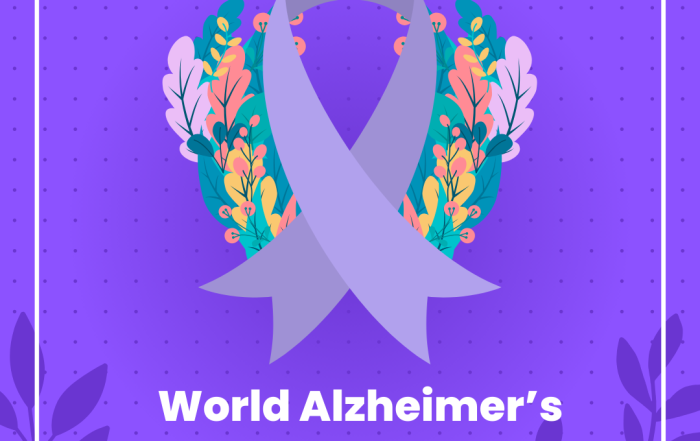This week, we continue with our four-part series on Alzheimer’s and look at the signs and symptoms of Alzheimer’s, and how to get a diagnosis.
As we know, Alzheimer’s disease is a type of brain disorder that causes problems one’s memory, thinking and behavior. It is characterized by changes in the brain that lead to deposits of certain proteins. Alzheimer’s disease causes the brain to shrink and brain cells to eventually die. Early signs of the disease include forgetting recent events or conversations. Over time, it progresses to serious memory problems and loss of the ability to perform everyday tasks. Symptoms depend on the stage of the disease, here are some by stage.
Mild:
- Memory loss that disrupts daily life
- Poor judgment, leading to bad decisions.
- Loss of spontaneity and sense of initiative
- Losing track of dates or knowing current location
- Taking longer to complete normal daily tasks.
- Repeating questions or forgetting recently learned information.
Moderate:
- Increased confusion and memory loss, such as forgetting events or personal history.
- Withdrawal from social activities.
- Inability to learn new things.
- Difficulty with language writing and working with numbers.
- Difficulty organizing thoughts and thinking logically.
- Shortened attention span.
- Changes in sleeping patterns, such as sleeping more during the day and being restless at night.
- Difficulty carrying out familiar, multistep tasks, such as getting dressed.
- Occasional problems recognizing family and friends.
- Impulsive behavior, such as undressing at inappropriate times or places, or using vulgar language.
- Inappropriate emotional outbursts.
- Restlessness, agitation, anxiety, tearfulness, wandering — especially in the late afternoon or evening.
Severe:
- Inability to communicate.
- No awareness of recent experiences or surroundings.
- Weight loss with little interest in eating.
- Seizures.
- General physical decline, including dental, skin, and foot problems.
- Difficulty swallowing.
- Groaning, moaning, or grunting.
- Increased sleeping.
- Loss of bowel and bladder control.
If you notice someone with these symptoms, talk to them about it and suggest a visit to their primary care doctor for a physical and routine test, as these symptoms, especially more mild ones, could just mean a vitamin deficiency. Help document areas of struggle for the person with their help and bring that to the appointment. Based on the results, the doctor will make a diagnosis and offer treatment options that are available and ideas to help based on the stage of the disease.
Remember, on September 21, 2023, wear Purple for Alzheimer’s Awareness.
CBHomeCare and our Family of Providers are happy to assist you with assessing your family’s needs and helping to provide the care necessary to help keep your loved one at home where they want to be. Please feel free to call us at 800-700-0008, and we will be happy to answer all of your questions. You can also click here to read about our services.







